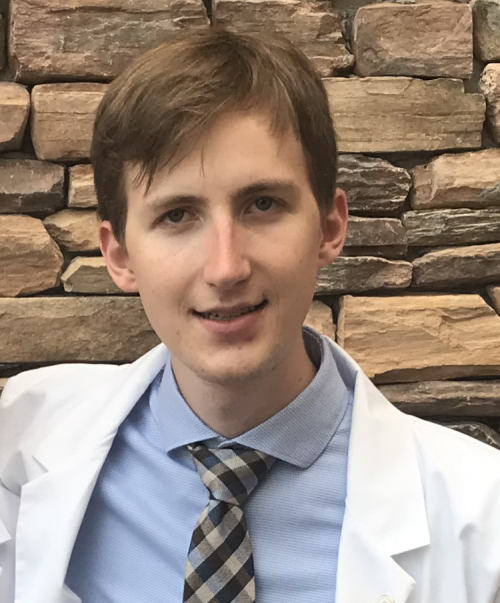Q & A with Baylor College of Medicine MD/PhD Candidate Michal Tyrlik
Michal Tyrlik graduated from the University of Maryland in 2020 with a dual-degree in Biochemistry and Biology (Neurobiology and Physiology). After graduating from UMD, he participated in the Post-Baccalaureate Program at the NIH, where he worked at the National Human Genome Research Institute (NHGRI). He is now in his third year of training at Baylor College of Medicine, where he has just transitioned into the research phase of his MD-PhD with the Genetics and Genomics graduate program.
Why MD-PhD?

I am passionate about pursuing research and believe that the additional clinical component of a joint program provides physician-scientists with greater insight to tackle medical problems. Furthermore, combined programs provide greater access to scientific resources (especially collaborators!), which makes for a more fruitful research experience.
What extracurricular activity do you think best prepared you for medical school?
The most important activity I participated in to prepare me for my current schooling was, of course, research! I was involved with research in the Biochemistry department while at Maryland. I also completed multiple summer internships at the NIH during my time as an undergraduate. Beyond research, however, it was also important to take part in leadership, volunteer, and clinical roles to make myself a well-rounded applicant.
What are some challenges you face in medical school?
Simply put, there is a lot of stuff to do and not much time to do it all!
What hobbies do you have outside of medicine?
I like to sail and play tennis. Balancing these hobbies has been difficult while in school, but having good time management has helped me make time for them.
What drew you to your particular medical school?
Baylor has a great culture – there is a lot of collaboration, especially amongst the graduate programs, which makes the research more well-rounded. I was also attracted to the school’s strong graduate Genetics program, as it is my intended area of study for my PhD. This was especially important, as many MD-PhD programs can offer proficient medical education, but not every program is going to be the right fit in terms of research. Be sure to do your research when compiling your schools list as an MD-PhD applicant!
How and when did you prepare for the MCAT?
I studied for the MCAT during the spring semester of my junior year. I used the Kaplan and Princeton Review book sets for content review, and I made sure to load up on practice exams to ensure I would reach my target score.
What advice would you give to your younger self?
Be strategic when preparing for the admissions process. There is a lot of data provided by MD-PhD programs that suggests what a competitive applicant looks like. Use this as a resource to guide how you want to go about your undergraduate career in order to make yourself stand out. This will ultimately help you to become more successful while in the admissions process, which gives you options when choosing a program.


